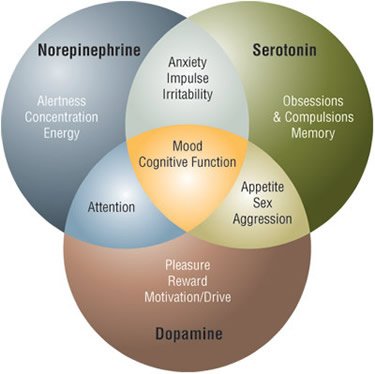Acupuncture for Anxiety.
Acupuncture has been used in China for centuries for tackling mental health issues and in 1990, the World Health Organisation (WHO) included mental health conditions like depression as one of the areas for which acupuncture can be especially effective.
Acupuncture involves the skilled insertion of sterilised hair-fine needles into areas of the body known as acupuncture points. (Sounds painful, but it’s not) Once inserted, needles are left in place for around 30 minutes before they’re removed and disposed of carefully.
Lily Lai, PhD, an acupuncturist based in Manchester says ‘There’s now a reasonable body of evidence to show that acupuncture can influence our brain chemistry through regulating the levels of neurotransmitters and hormones such as serotonin, noradrenalin and dopamine, and this is one of the ways that acupuncture is thought to help with anxiety disorders,’.
Studies also suggest that acupuncture can stimulate the parasympathetic nervous system which encourages the body to relax and unwind (2). By doing this, acupuncture takes our bodies out of the ‘fight-or-flight’ state that the sympathetic nervous system is associated with. This can also explain why so many people find the experience of receiving acupuncture extremely relaxing in itself, even if they’re not necessarily seeking help for anxiety or stress.
For most who have acupuncture, relaxation effects can be felt instantly but for mental health conditions like Generalised Anxiety Disorder (GAD), a course of 10-12 sessions is generally recommended to offer longer-lasting effects. Improvements in mood will typically be noticeable within 3 or 4 sessions which will show that acupuncture is starting to have an effect, further progress can be expected with ongoing treatments.
‘For many people, acupuncture can be a useful drug-free way to give them a bit of headspace again and to calm the unhelpful mental chatter,’ Lily adds, ’ This can make acupuncture a valuable tool for anyone wanting to minimise the amount of medications they’re on and to be able to start managing their symptoms alongside talking therapies like CBT*.’
* Cognitive behavioural therapy (CBT) and mindfulness based CBT are two of the popular and effective forms of treatment for Anxiety. A meta-analysis found that compared to placebo therapy, CBT had a moderate to large effect on reducing anxiety from a variety of causes (1). They may be prescribed as standalone treatments or combined with medications.
(1)Hofmann,S.G.,psychiatry,J.S.T.J.O.C.,2008.(n.d.).Cognitive-behavioral therapy for adult anxiety disorders:a meta-analysis of randomized placebo-controlled trials. Ncbi.Nlm.Nih.Gov
(2)Yang XY, Yang NB, Huang FF, Ren S, Li ZJ. Effectiveness of acupuncture on anxiety disorder: a systematic review and meta-analysis of randomised controlled trials. Ann Gen Psychiatry. 2021 Jan 30;20(1):9. doi: 10.1186/s12991-021-00327-5. PMID: 33516258; PMCID: PMC7847562.


